Carpal Tunnel Syndrome Treatment

Carpal Tunnel Syndrome Specialist
Carpal tunnel syndrome (CTS) is also called median nerve compression that causes numbness, tingling, or weaknesses in the hand. The pressure on the median nerve runs on the arm length that goes through a passage in your wrist called the carpal tunnel, which ends in your hand.
The median nerve controls your thumb movement and feeling and movement of all your fingers. The pain is the major complaint, which is mild to moderate initially and then worsens later.
CTS should be promptly managed, even if mild, as it can cause long-term damage. Consider the chiropractors that can treat carpal tunnel by non-surgical methods, like chiropractic treatment for carpal tunnel syndrome surgery.





Symptoms Of Carpal Tunnel Syndrome
The symptoms of CTS start gradually and worsen progressively. The two significant signs are sensory loss and motor loss. It is the result of slower nerve impulses and shows the following symptoms:
Sensory loss:
- It starts as a tingling, electric shock-like sensation, traveling from the wrist up to the arm
- It is more prominent in the areas supplied by the median nerve like the thumb, index, middle, and ring fingers
- The feeling of numbness grows constant over time
Motor loss:
- The weakness and numbness in your hands slowly affect your grip and ability to pinch. It results in dropped objects
- You may notice less strength and coordination in your hand muscles

Causes Of Carpal Tunnel Syndrome
The cause for CTS is most commonly some underlying condition. The condition may lead to a swollen wrist and possibly obstruct blood flow.
Other common carpal tunnel causes are:
- Hypothyroidism
- Obesity
- Autoimmune diseases like Rheumatoid arthritis
- Diabetes
- Fluid retention because of pregnancy, menopause, or any other disorder
- High blood pressure
- Trauma or fractures in the wrist
In addition to medical issues, some triggering factors can exacerbate and worsen the condition. These are:
- Overextension of the wrist
- Repeated motion of the wrist joint
- Mal-positioning of the wrist while using a keyboard or mouse
- Repetitive wrist movements like typing and playing the piano
- Prolonged exposure to vibrating power or hand tools
Carpal Tunnel Treatment
The pain of median nerve compression syndrome is very severe, often awakening the patient at night. Starting CTS treatment as soon as possible help reduce nerve damage.
Depending on the severity of symptoms, various carpal tunnel treatment options are available.
The treatment options for mild symptoms lasting less than ten minutes with little to no numbness are:
- Rest
- Avoiding triggering activities
- Applying cold packs to the inflamed area
- Pain killers
Depending on the individual case, these non-surgical or surgical interventions may treat moderate to severe symptoms.
Non-surgical therapy:
It is helpful when nerve damage is not severe and comprises of:
- Bracing or splinting
- Nonsteroidal anti-inflammatory drugs (NSAIDs)
- Nerve gliding exercises
- Steroid injections (cortisone injections)
Depending on the individual case, these non-surgical or surgical interventions may treat moderate to severe symptoms.
Non-surgical therapy:
It is helpful when nerve damage is not severe and comprises of:
- Bracing or splinting
- Nonsteroidal anti-inflammatory drugs (NSAIDs)
- Nerve gliding exercises
- Steroid injections (cortisone injections)
Surgical treatment:
Surgery is inevitable for releasing pressure when the compressive force is severe enough to cause weakness and loss of coordination in the fingers. There are two ways in which surgery can be performed.
- Endoscopic surgery
- Open Carpal Tunnel Release Surgery
Chiropractic treatment for carpal tunnel syndromes like spinal manipulation and deep friction massage offers pain relief.
Chiropractic Treatment For Carpal Tunnel Syndrome
Chiropractic care can treat your carpal tunnel syndrome by addressing its underlying cause. Depending on the severity and cause of your pain, the healing process may take weeks to months.
Tacoma Chiropractic Health Connection Clinic is a top chiropractic clinic in Tacoma that helps effectively treat carpal tunnel syndrome. We use our experience and knowledge to provide the highest quality of care to our patients.
Our treatment process generally involves:
- Diagnosing the cause through a physical examination and X-ray if required
- Using spinal manipulations to relieve pressure on the nerve if the compressed nerve lies in the upper spine
- Using gentle wrist or elbow manipulations if the pinched nerve at the carpal tunnel
- Massage therapy to relax the irritated muscles and fascia and reduce inflammation, pain, and numbness
There are also specific exercises that reduce pain and numbness by decreasing the pressure on the median nerve. They include:
- Wrist extension stretch
- Wrist flexion stretch
- Medial nerve glides
Long Term Problems Of Untreated Carpal Tunnel Syndrome
Long-term complications of ignoring carpal tunnel syndrome can lead to severe consequences like:
- A weakness of muscles in the base of the thumb in the palm
- Possible permanent muscle atrophy
- Minimal dexterity in affected fingers
Frequently Asked Questions About Carpal Tunnel Syndrome
Are Chiropractors good for carpal tunnel?
In Tacoma, a chiropractor for carpal syndrome can help alleviate the symptoms of CTS. The chiropractic treatment for carpal tunnel is carried out by neutralizing the hand’s position with the help of manual traction and exercises so that pressure on the median nerve is released. Chiropractic care allows the pinched nerve to heal naturally on its own. Your chiropractor for carpal syndrome will also advise you on how to prevent carpal tunnel.
How I cured my carpal tunnel naturally?
Timely management of CTS is necessary in order to avoid surgery and allow healing naturally. Specific techniques help release the pressure on the median nerve and thus, decrease the inflammation. The use of splints to treat carpal tunnel syndrome, and chiropractic treatment is highly recommended in this regard. Taking rest from repetitive activities like typing, and playing the piano, which aggravate the symptoms, is also beneficial.Is carpal tunnel considered nerve damage?
Carpal tunnel is a condition arising because of the compression of the median nerve. As the nerve compresses, it becomes inflamed. If the pressure is released early, the nerve can heal. However, if left untreated, the inflammatory damage increases over time, and eventually, the nerve damage may become permanent.
Can you fix carpal tunnel without surgery?
Non-surgical methods can manage CTS if symptoms are mild, and nerve damage is not severe. The non-surgical options are:
- Avoid overextension of the hand/wrist that pressurizes the carpal tunnel and, subsequently, the median nerve
- A wrist splint helps maintain the neutral position of the hand, especially while sleeping
- Anti-inflammatory medications help soothe the inflamed nerve. Steroid injections are of particular interest in this regard.
- Additionally, the triggering conditions like gout and arthritis that cause swelling, contributing to median nerve compression, are also necessary.
- Chiropractic care for carpal tunnel produces promising results
What can be mistaken for a carpal tunnel?
Numerous conditions have similar symptoms to carpal tunnel in Tacoma and can confuse the patient and the doctor. Some of these are:
- Acute compartment syndrome – sudden compression of nerves, vessels, and tendons after recovery from the burn or any lacerating injury, producing severe pain and weakness
- Neurological diseases like nerve compression, discitis, neuritis, multiple sclerosis, etc.
- Overuse injury
- Arthritis
- Traumatic injury to brachial plexus (nerves that supply hand)
How do I know if it’s carpal tunnel or arthritis?
CTS symptoms include numbness, tingling sensation, and weakness of the hand. Arthritis can present with pain, joint swelling, and difficulty in joint movement. The major difference between these two is arthritis is a disease of joints, while CTS is a muscle disease. CTS causes weakness of the hand and decreased gripping. On the other hand, arthritis affects the mobility of the joints while the power of the muscles and gripping remains intact. Furthermore, in arthritis, there is no tingling sensation.
What are the warning signs of carpal tunnel syndrome?
The symptoms of CTS are initially mild and then gradually worsen. The severity of symptoms indicates the seriousness of the syndrome. The harder the median nerve pinches, the greater is the pain and numbness. When your grip weakens that you can no longer hold objects, this is the ultimate warning sign. Additionally, the presence of constant numbness and severe pain, waking you up at night, is also alarming features.
Does Medical Insurance Cover Treatment of Carpal Tunnel Syndrome?
The treatment of CTS, including both surgical and non-surgical, is covered by medical insurance. The funding is divided in the following way:
- Part A covers CTS surgery and hospital stay
- Part B covers doctor’s visits, diagnostic tests, outpatient surgery, and non-surgical treatment like cortisone injection and braces
- Part C is the alternative to parts A and B and is offered by Medicare advantage
- Part D covers prescription drug coverage, which is usually not covered by original Medicare
How long does carpal tunnel usually last?
CTS tends to respond to the treatment, with less than half of the affected people reporting complete recovery. The symptoms get better with chiropractic adjustments and physiotherapy; however, some residual numbness and weakness usually remain. The exact duration of symptoms depends on how severely the median nerve is pinched. In general, symptoms may last for up to six months or even longer.

